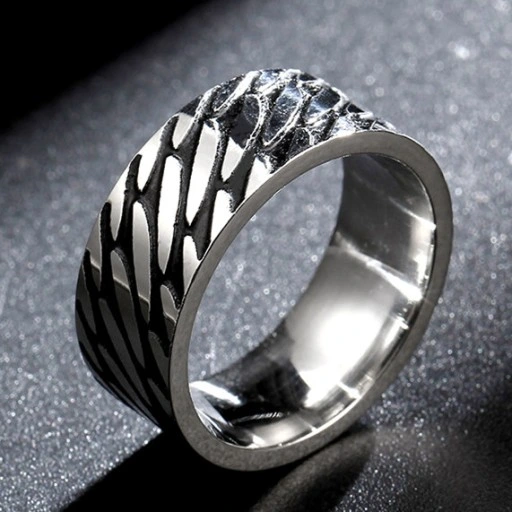From aerospace engineering to biomedical applications, the allure of Titanove Alloy lies in its exceptional strength, corrosion resistance, and lightweight nature. Let’s delve into the depths of this remarkable alloy, exploring its composition, applications, and transformative impact.
What is Titanove Alloy
Titanove Alloy, a cutting-edge material blend of titanium and innovative additives, stands at the forefront of modern engineering marvels. Renowned for its superior strength-to-weight ratio and corrosion resistance, this alloy embodies the pinnacle of material innovation. Let’s unravel the myriad applications and benefits of Titanove Alloy across diverse industries.
The Composition of Titanove Alloy
Titanium: The Foundation of Strength
Titanium serves as the cornerstone of Titanove Alloy, contributing to its exceptional durability and lightweight properties. Renowned for its high strength-to-weight ratio and biocompatibility, titanium forms the backbone of numerous industrial and medical applications.
Innovative Additives: Enhancing Performance
The integration of innovative additives enhances the performance of Titanove Alloy, elevating its mechanical properties and corrosion resistance to unprecedented levels. Through meticulous alloy design and precision engineering, these additives fortify the alloy’s structural integrity and longevity.
Applications Across Industries
Aerospace Engineering: Soaring to New Heights
In the aerospace sector, Titanove Alloy revolutionizes aircraft design, enabling the development of lightweight yet robust components. From airframes to turbine engines, this alloy empowers aerospace engineers to push the boundaries of performance and fuel efficiency.
Biomedical Innovations: Healing with Precision
Within the realm of medicine, Titanove Alloy finds applications in orthopedic implants, surgical instruments, and medical devices. Its biocompatibility, coupled with superior mechanical properties, ensures optimal patient outcomes and long-term implant success.
Marine Engineering: Defying Corrosion
Marine environments pose significant challenges to conventional materials due to corrosion and saltwater exposure. Titanove Alloy, with its exceptional corrosion resistance, emerges as the material of choice for marine engineering applications, including shipbuilding and offshore structures.
Automotive Advancements: Driving Efficiency
In the automotive industry, Titanove Alloy contributes to vehicle lightweighting initiatives, enhancing fuel efficiency and performance while maintaining structural integrity. From chassis components to exhaust systems, this alloy facilitates the development of next-generation automobiles.
Benefits of Titanove Alloy
Strength and Durability
Titanove Alloy offers unparalleled strength and durability, outperforming traditional materials in demanding applications. Its high fatigue resistance and structural stability ensure long-term reliability and performance across diverse industries.
Corrosion Resistance
The corrosion-resistant properties of Titanove Alloy make it ideal for applications in harsh environments, such as marine and chemical processing. By mitigating corrosion-related failures, this alloy extends equipment lifespan and reduces maintenance costs.
Lightweight Design
With its low density and high strength, Titanove Alloy enables lightweight design solutions without compromising structural integrity. This characteristic is particularly advantageous in aerospace, automotive, and sporting equipment applications, where weight reduction is paramount.
Biocompatibility
In medical applications, the biocompatibility of Titanove Alloy ensures compatibility with the human body, minimizing adverse reactions and promoting tissue integration. This feature is essential for orthopedic implants, dental prosthetics, and surgical instruments.
FAQs (Frequently Asked Questions)
- What are the primary components of Titanove Alloy? Titanove Alloy comprises titanium and innovative additives, meticulously blended to enhance its mechanical properties and corrosion resistance.
- What industries benefit most from Titanove Alloy? Titanove Alloy finds applications across diverse industries, including aerospace, biomedical, marine, and automotive engineering.
- How does Titanove Alloy compare to traditional materials? Compared to traditional materials, Titanove Alloy offers superior strength, corrosion resistance, and lightweight design, making it the material of choice for high-performance applications.
- Is Titanove Alloy suitable for medical implants? Yes, Titanove Alloy’s biocompatibility and mechanical properties make it well-suited for orthopedic implants, dental prosthetics, and other medical devices.
- What are the environmental benefits of using Titanove Alloy? Titanove Alloy’s lightweight design contributes to fuel efficiency and reduced emissions in transportation applications, aligning with sustainability goals.
- How does Titanove Alloy contribute to innovation in aerospace engineering? In aerospace engineering, Titanove Alloy enables the development of lightweight yet robust components, enhancing aircraft performance and fuel efficiency.
Conclusion
In conclusion, Titanove Alloy stands as a testament to human ingenuity, pushing the boundaries of material science and engineering. Its remarkable properties and diverse applications pave the way for innovation across industries, from aerospace to medicine. As we embrace the future of engineering, Titanove Alloy remains at the forefront of transformative technologies, driving progress and prosperity.

